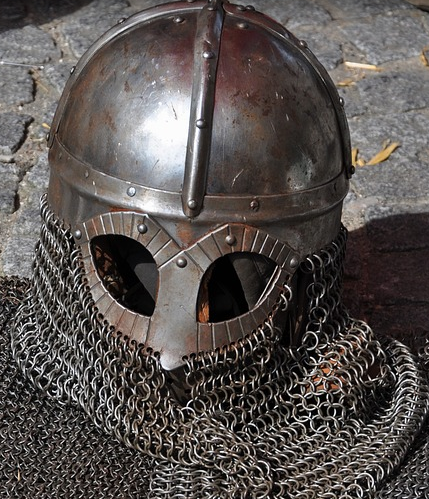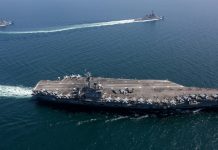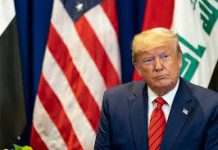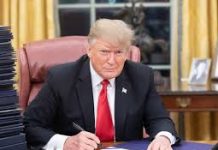The first shipment of liquefied natural gas (LNG) produced in Mozambique arrived at a regasification terminal in Croatia on January 23rd, 2023. The LNG was sent from the offshore floating plant of the Coral Sul FLNG Project, operated by Italian company Eni, and first stopped in Bilbao, Spain after a 24-day voyage.
As EU countries struggled to prepare for a serious energy crisis, the carrier’s arrival was welcome news. Claudio Descalzi, CEO of Eni, explains:
“The first shipment of LNG from Coral South project, and from Mozambique, is a new and significant step forward in Eni’s strategy to leverage gas as a source that can contribute in a significant way to Europe’s energy security, also through the increasing diversification of supplies, while also supporting a just and sustainable transition.”
While it is the first to export LNG, the Coral Sul platform has four to five times less production capacity than the other two nearby gas projects. But those projects are located onshore and are not operating because a violent insurgency began terrorizing the region in 2017. The Area 4 project (The Mozambique Rovuma Venture led by Exxon/Eni) put its final investment decision indefinitely on hold and work never started. Construction of the Area 1 (The Mozambique LNG Project led by TotalEnergies) liquefication plant was underway when operations were suspended in 2021.
As conflict halted progress onshore, the government and citizens of Mozambique have eagerly been waiting for the discovery of massive natural gas reserves to finally pay off. Now that an initial shipment from Eni’s offshore facility has arrived in Europe, all eyes are on The Mozambique LNG Project to see when or if work will resume.
Postponed Potential
Mozambique is one of the world’s poorest countries and has a history of civil war and natural disasters. But the country could be on the brink of an economic success story if its natural gas reserves of over 180 tcf are able to be exploited and if revenues are managed effectively. According to the African Development Bank, “The sheer volume of gas discovery and expected LNG production will place Mozambique in the third rank of global LNG suppliers.” This means revenues for the government could reach around $100 billion over 25 years.
To access this windfall, the government needs The Mozambique LNG Project to resume operations. Project plans include two trains that could produce 13.1 million tonnes per annum (MTPA) with the ability to reach 43 MTPA.
Additionally, the socio-economic potential is huge. Project leaders pledged to create thousands of local jobs. Businesses across the country are hoping to win bids for gas development-related contracts. For example, it is estimated that Phase 1 of the project could create up to 1,200 direct jobs in Mozambican companies working on the 60,000 tons of steelwork needed.
When project leader TotalEnergies declared force majeure on April 26th, 2021 and evacuated employees from Cabo Delgado, potential revenues and jobs were postponed. The project has repeatedly said it would only return when security is restored and “life is back to normal.” In June 2021, the Mozambican government called in help from Rwanda and the South African Development Community (SADC). Troops have secured strategic towns and many displaced persons have returned home, but insurgents still occasionally attack.
Hopes that operations might soon resume were recently sparked when Patrick Pouyanné, CEO of TotalEnergies, visited the region on February 2nd, 2023. He announced that Jean-Christophe Rufin, a founder of Doctors Without Borders and former president of Action Against Hunger, would evaluate the humanitarian situation in Cabo Delgado. Pouyanné observed that thanks to help from neighboring African countries, the security situation “has improved significantly” and that Rufin’s assessment will help partners of the project decide whether or not “the current situation allows for a resumption of activities while respecting human rights.”
Europe’s “Unprecedented Crisis”
Mozambique’s President Nyusi is hopeful The Mozambique LNG Project’s leaders will soon deem the region stable enough to resume operations. He is relying heavily on the fact that Europe is eager to secure additional energy supplies.
In a statement celebrating Mozambique’s first LNG shipment, Nyusi added a subtle reminder that the country’s natural gas, “in addition to representing an alternative source of supply, contributes greatly to the energy security of the countries with the highest consumption.”
Leading up to this winter, the IMF warned that Europe’s “energy system faces an unprecedented crisis” and that Russia’s invasion of Ukraine is largely to blame. In 2021, Russia exported 155 billion cubic meters of gas to Europe, but those supplies were cut by over 80%. With increased demand and reduced supply, the price of LNG has more than doubled since the war began.
Anticipating cold months ahead, European governments got out their checkbooks to help reduce energy prices and protect vulnerable citizens and businesses. An estimated €800 billion was shelled out with Germany topping the chart with almost €270 billion.
EU countries including Austria, Italy, Germany, the Netherlands and France reopened coal-fired power plants in order to get through the winter. Germany’s government gave the green light to reopen 27 such plants until March 2024. But these decisions pose a major threat to EU climate change goals. Geneviève Pons from the Jacques Delors Institute argues that, “It is quite shocking that we are allowing ourselves to come back to reopening power stations that are twice as polluting as gas power stations.”
Luckily, the expected crisis did not materialize as temperatures this winter were mild, increased wind helped run hydro and wind generators and nuclear plants in France previously undergoing maintenance were turned back on. Also, new LNG sources, like Mozambique’s, began producing. However, the International Energy Agency says Europe still does not have the energy supply needed to make it through a bad winter next year. And with Asia’s gas demands also expected to rise, the EU is scrambling to secure contracts for future gas production.
EU Aid to Mozambique
The New York Times reported that “European leaders have been converging on Africa’s capital cities, eager to find alternatives to Russian natural gas.” Mozambique’s huge natural gas reserves make the country a top priority which is apparent in the recent flurry of funds earmarked for them by the EU.
To ensure Cabo Delgado is secure enough for gas projects to resume, the EU is currently spending €89 million to train and equip the Mozambican army. In September 2022, EU foreign policy chief Josep Borrell announced that an additional €15 million would be provided to support SADC forces fighting the insurgency and €20 million for Rwanda’s troops. The EU also provided over €28 million in humanitarian aid to help people displaced by conflict.
In November 2022, the EU demonstrated its recognition that development programs are also needed throughout the country if stability is to be achieved. It pledged €148.2 million for projects covering six sectors: education, resilience building in the north, water and sanitation, energy, culture and digitalization. `
Promising openings
Sudden funding to Mozambique from the EU is undoubtedly motivated partially by self-interest. The EU needs to secure new gas sources and Mozambique has enormous potential. But the country’s most promising venture, The Mozambique LNG Project, has made it clear that it will only restart production when the region has stabilized and life for locals has normalized.
Funds earmarked by the EU in 2022 for Mozambique are meant to provide the security and development needed for that to happen – a positive thing for both citizens of the African country and Europeans hoping to avoid an actual energy crisis next winter. And given that the other main investors in the Mozambique LNG Project after France’s TotalEnergies are from Japan, India and Thailand, it seems the Asian market is also interested in the stabilization of Mozambique and the production of its natural gas.

After a few years as a contract serviceman, I graduated with a degree in business law, and worked in defence industry related groups. This has given me the opportunity to work closely on a number of export markets related topics. As a result, I feel a certain legitimacy to write on these subjects.





